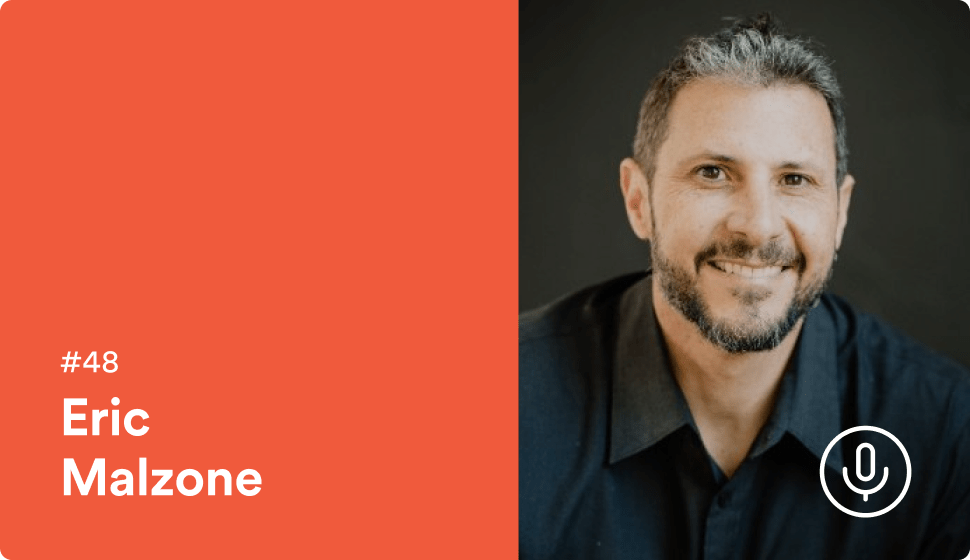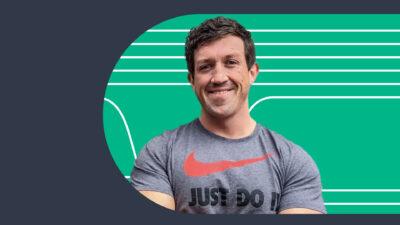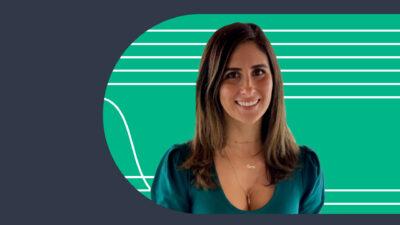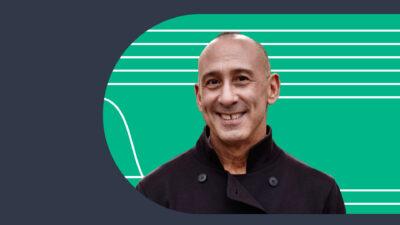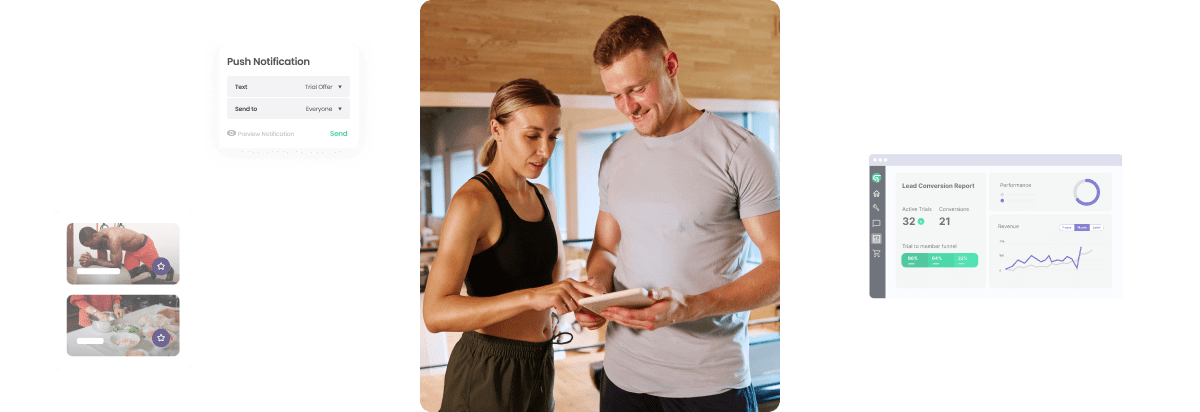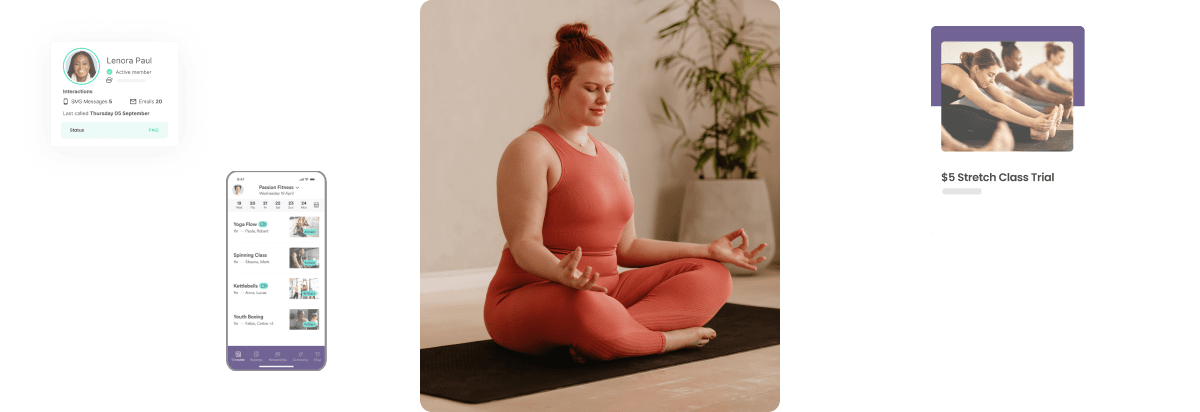This week we talk to Eric Malzone, a fitness industry consultant and podcast host who has a wealth of experience in entrepreneurship and the fitness industry
In this episode Eric talks to us about the huge opportunity in the industry right now and takes us through the key qualities you need to be a successful fitness entrepreneur.
Eric is the host of two excellent podcasts. The Future of Fitness Podcast a health science, fitness, and wellness interview podcast featuring the bleeding edge experts and entrepreneurs and The Black Diamond Podcast, where he interviews some of the world’s best and brightest entrepreneurs, founders, and influencers.
The Future of Fitness Podcast: https://www.futureoffitness.co/
The Black Diamond Podcast: https://www.level5mentors.com/podcast/
Check out Eric’s consultancy business Level 5 Mentors: https://www.level5mentors.com/
Episode Link
Transcript
Kevin: How is it going everyone? Welcome to the Fitness Founders Podcast. I’m Kevin Mannion, VP Marketing here at Glofox. This week we talk to Eric Malzone, a fitness industry consultant and host of the Future of Fitness podcast. In this episode, Eric talks to us about the opportunities in the fitness industry right now and key qualities you need to be a successful fitness entrepreneur.
Eric Malzone welcome to the show.
Eric: Thank you, Kevin. It’s great to be here.
Kevin: It’s great to have you on. I know that you are very passionate about the topics of entrepreneurship and also the future of the fitness industry, so really excited about tackling those two subjects. Let’s kick off maybe you could tell us a little bit about yourself.
Eric: Yeah, I would love to. I would also just preface everything by saying thank you for coming on. I know how much work goes into being a podcast host and I appreciate as well as the gratitude go in your way from the seats even though we’re across the planet.
My story, I guess I’ll give you the three-minute version. Born in Silicon Valley before it was the Silicon Valley really. I remember riding my bike around when it was all orchards and then companies start popping up everywhere and the whole valley just completely blew up. It was great time to be there. It was really interesting. I was early in athletics so I started competitively swimming at the age of 5. Got into water polo, which I know a lot of people aren’t familiar with, and there are no horses. The horses do not swim. I started that around 9 or 10, and I played that sports for about 20 years. So athletics, being in the gym, physicality has always been a part of my life as so as being on the team. After high school, I played all the way through college. Played for club teams and things like that.
After school, I came back from Boston to San Francisco and spent about 8 or 9 years in the corporate world so mostly various forms of sales and marketing and promotion. And worked for radio stations, and I worked for recruitment firms, I worked for legal publishing. A lot of different things, real estate, finance, and over the years about a pretty good sales career, managed some teams. And I kind of look forward, I remember I was sitting at a national sales conference and I look forward about 10 years where I would be if I stayed in that path and I didn’t like it. When the opportunity arose, and my dad was also a business owner, so I kind of grew up around that… When the opportunity arose through the way of a text message into 2008 from an old college teammate, [unclear – 3:37] who just said, “Hey man, do you want to open a gym?” It took me one beer and 5 minutes to say, “Yes. Let’s do it,” and that was it.
Basically, six months later I was driving down from San Francisco down to Santa Barbara, California which was a town that I never been to before nor did I know anybody. We open a little thing, an 800 sq.ft…. Pacific coast. That was 2008, 2009, terrible times as far as the economy goes who took a little while get going. We were bootstrapping everything. There weren’t any loans available and surely it started to get traction. Slowly but surely I should say. And we started to grow and grow and grow. We expanded three times. Open another gym as well in the area. Those were great. It was a good time.
Right around 2016, my wife and I had a bunch of personal things that happened that kind of piled up that I think just made us both ready for a change. So when I presented to her into 2017, like, “Hey, we used to talk about living in that mountain town someday. Why wouldn’t we sell the businesses we do now. Her reply was awesome it was, “Do not F with me. Are you serious?” And I was like, “Yes.” She’s like, “Why don’t we go live in a bunch of mountain towns.” I was like, “That’s amazing. I love you. Let’s do it.” That was it. We sold the gym which was an adventure within itself. I successfully exited from those, renting our home, bought a little trailer, started going around for about 2.5 years. And during that time I started my first podcast, The Future of Fitness. I founded a couple of different companies with varying levels of success, you know, always find a way to keep an income on coming in.
Finally, now, fast forward, we are in Whitefish, Montana and I’m co-founder of Level 5 Mentors, I have The Future of Fitness podcast, and Black Diamond podcast and things were cranking, so that’s my backstory.
Kevin: Nice. Let’s dig in there. I think we were talking before we started here about the art of podcasting and how much you learn from being a podcaster from interviewing all this great people. Now, … I’m just curious what have you learned about what has changed in the fitness industry from talking to all the great people that you do over the last 6 months?
Eric: There’s a lot of layers to that question. I do love podcasting. I was actually on a webinar yesterday with my friend Kate… her coaching group, and we talked about all the benefits of podcasting. And as I was teaching this and what I do in my methods I was realizing how valuable it is. Not just from learning people that as you and I were talking about building a network, even building a sales funnel through it is really, really powerful thing.
So what I have learned? Well, I think, you know I started in 2017 in The Future of Fitness podcast mainly because I had a constraint. I was moving around all the time. It was hard for me to build a local network because I would be gone in two months. But I wanted to play a bigger role within the fitness industry so I just started asking people to come on my show and learning. I started to realize through these conversations like, “Wow! These models haven’t really changed in a very long time.” Since maybe… opened his gym in whatever 1960s something, right? The personal training model, the small group. We talked about hybrid model that really isn’t that new. It’s been around for a long time as well. The model was really ripe for disruption and there is a lot of modernizing that needed to take place within the industry and technology was coming into play a huge play. And not just technology but if you look at all these different things from real time biometrics, to wearables, to VR, AR. All these things are changing the fitness industry drastically, really fast. No one was really educating people on what was taking place and that’s where I kind of filled in. I’m like, I want to do as much as I can educate myself and therefore educate my audience about what’s coming down the pipe.
There is a lot. I mean, the fitness industry has obviously changed in the last six months. Today’s recording is October 1st 2020, and who knows what will happen in this October 2nd, but there’s a lot of changing. Obviously gym owners are drastically changing the way they do business pivoting hard in any way they can and there is also a lot of businesses that are thriving. I think one technology that I use all the time and people who listen to my show are probably sick of it, but the gold rush back in California. The people who made all the money weren’t the people mining for gold, right? They were the people selling the pick axes and the shovels. And what we are seeing now in the fitness industry is this mad rush to remote coaching, hybrid models, all these different things. There will be fitness professionals who do well through their content creation and separation from the pack. But the people who are making all the money right now, who are doing really well are the platforms, the educational companies, the pick axes and shovels of the industry. That’s kind of what I’m seeing now is that people are producing a ton of content or helping people produce content. It’s the people who are ushering in this new wave and they are doing extremely well. We work with a couple of them and we’re talking like 200% increases over the last year.
Kevin: Yes, definitely exciting time. Seem like brings us nicely into the main topic for today which is an entrepreneur’s guide for starting a fitness business. I suppose this is a bit like somebody who is having to think around entering somewhere in the fitness industry they are like you and the 5 minutes and the beer and someone had said something to them. Where would you start in terms of… maybe build a little bit more what you were saying there. Where do you think the big opportunities are going to be in fitness in the future?
Eric: Yeah. Well, I think if I knew for sure I would be tripling down on it, right, but everything is changing really fast. I guess let me back up because there is an analogy I use all time because it really helped me clarify thing. When I was young and I was swimming the coach I had said, “Eric, there’s two types of swimmers. There are swimmers and there are athletes that swim.” Okay. The reason I’m using that analogy is because I think within the fitness industry there’s gym owners, business owners and there’s entrepreneurs who owns businesses. You may not know what you are yet. The one isn’t better than the other. In fact, if you are a straight up business owner you are devoting, you love what you are doing in your gym, and you don’t have any inkling to expand then you are probably going to be much happier than an entrepreneurial role anyway.
That being said, whenever a consumer needs shift. Every entrepreneur I talk to right now from all different industry as I was on a call yesterday with a guy who has had $3 billion exits. And he is by all means retired but he is bringing himself back into the game as an operator now so he is a CEO because he thinks this is the most exciting time of our lifetimes to be an entrepreneur. Because consumer needs are shifting and consumer need shift there is a huge amount of opportunity, status quo is broken, people have had strangleholds on specific industries and verticals don’t have it anymore which leads to a ton of opportunity. It’s everywhere. It’s everywhere you look and all you have to do is just spend time understanding what problems consumers are having right now and looking actively for solutions to probably either solve your own problems, right, or look around at some common problems and looking for solutions for those. I hope that helps. It’s pretty…
Kevin: Yeah. Well, it’s simple stuff but it makes a lot of sense. Starting with the problems that you can see around you and there’s definitely lots of them now. What are the things that yourself talk and write about a lot is leadership. Maybe just a little bit of an open question here. What do you think it means to be a leader in times like this?
Eric: It’s not easy. I had a lot of conversations with Adam Zeitsiff who was the former CEO of Gold’s Gym which is an iconic brand. I really like Adam. I think he really exemplify leadership during a very tough time. He looked after… I remember when I got the news. I emailed him and going on a short call. I heard the news that they have been bought and he was no longer going to be CEO. I asked him, “Hey, if there’s anything I can do for you, make any connections for you, I’m happy to do that.” And he said, “Well, I’m not really worried about that right now. I’m worried about the dozens of people who are on my team who I can help find positions right now and make sure they are taken care of.” To me that’s leadership. I think there’s a certain amount of empathy. I think during a time like this too it pays to be very open and communication is key. Whether you are a small business owner or a CEO of a company like Gold’s Gym, communication, letting them know that you have intention that you may not have all the answers is okay, but letting them know that you are working on it and you are open to their ideas and that you are putting them first. I think that’s probably the biggest thing.
And ultimately stay calm, right. Once you start freaking out… You can freak out on the inside. Feak out when you go home. Freak out when you are driving from the office to your home. I guess not it is just walking from your office to your kitchen, right. Freak out on your own time. But be calm. Let people know that you communicate what’s going on. Keep communication leaves open and just do the best you can. I think that’s ultimately the best.
Kevin: Yeah, I think you’re right. I think communication and the honesty, but the air off cam are three things that are very important. Well, you know, somebody who is starting in entrepreneurship and thinking about their leadership abilities. What would you say are some of the things that are common pitfalls in terms of core leadership or things people may not be thinking about when it comes to their leadership abilities?
Eric: Well, two things. Number one, understanding your personal values and the values of your organization. I know that sounds very woo woo. But really understanding what it is that you value like if I’m clear with myself. I feel like there’s things that society tells me should be high in my value list. Maybe it’s spirituality or your family or… I don’t have kids but society says your kids should be your number one priority. But sometimes if people are really honest with themselves their values don’t stack up the way that society tells them that it should. And that’s okay. You just have to be clear on that and open with that. Same goes with your organization. What do you value the most as an organization? And making sure that people that you hire on understand those values in line with them because your life is going to be a lot easier going down the road.
The other thing I will say is little bit last woo woo is know what your unique ability is as a leader and… of your team. I’ll use an example, Ken Andrukow is my business partner at Level 5 Mentor. We’re very similar person. We’re quick to see a vision but we are not implementers. So if you look at the way we work we both have great ideas like, “Cool. Let’s do it.” And then it’s just quiet because no one really wants to go and implement it. But believe it or not there’s people who would love to implement but hate the visionary work, right? So you want to find out A like what is your unique ability and we use a Kolbe test all the time because it really gives you some quick insight into kind of where you land on different parameters. It’s nice to quantify things. And then make sure that when you are hiring and building your team that you are putting people into the right positions to give them success. Set them up for success. Don’t hire people simply because you like them or because of their experience, but understand who they are, what they thrive in. If there is someone who hates social media and you give them the assignment of being a social media manager because that’s the spot that you need filled, they are not going to be very successful because they are going to hate it, right? But once you understand what that person is really good at, what fires them up, then you try to put them in that unique ability as much as possible and therefore you’ll succeed because they will be successful as well.
Kevin: And if we take just a step back to dig deeper around the values and your unique abilities. For someone who hasn’t been through that exercise, how should they start to determine what those value are? Say if they just don’t know what the answer is. Where would they start?
Eric: Yeah. I’ve really started digging this whole values thing back around 2012. I went through the OPEX. Well, it is OPT back then but now it’s OPEX. I went through the whole training as in person back then. I went through their life coaching. So there’s 5 modules, one of them is life coaching. I felt life coaching was just going to be a box that I was going to check and move on and I don’t think it was going to be that good. It was excellent.
We started to understand what our own values were and we used the thing Dr. Demartini. You just have to Google it ‘Demartini values assessment’. It is a really easy questionnaire that you can go through and from that you’ll get a really clear idea of what you actually value. Like what I thought I valued, Kevin, was not what actually I value. I value freedom and what I call my craft, right, whatever it is that I’m working on right now. Those are the things. It should have been when society was right, it should have been my family, my marriage, all those things. Sorry my wife, but that doesn’t stack up on my values. I have to be cognizant of that and have to be honest with myself. If you understand that and she understands my values better, then we are going to get along a whole lot better too. And that relationship just doesn’t go on a marriage but it goes into a relationship that you have.
Kevin: And are you telling me, Eric, that if I sat down here or one of our listeners sat down with a blank and wrote out values that the answers that they would get there are different to going through a proper process?
Eric: I don’t know. I think it depends on the person. I really do. I would use something that’s subjective that helps you walk through it without having any kind of bias into it. And that’s why I love external assessments like Demartini. You could probably Google ‘value assessment’ and get… There are ones they have like 100 of words and you circle the ones that you like and then it kind of calculates something. But Demartini there is a lot of thought put into that one. It was really powerful for me.
Kevin: Nice. Okay. I think that’s a good summary. I think my takeaway on leadership then is that people probably spent a lot of time thinking about leadership being the way they order people around. But a lot of it becoming a good leader is actually understanding a lot of things about yourself.
Eric: Yeah, absolutely. Well said, Kevin. Yeah.
Kevin: There you go. Okay, we’ll move on because I know another thing that you’re passionate about is self-doubt. And there is no question that self-doubt can happen as you start to launch a business or become an entrepreneur. How do you deal with that?
Eric: Yes. Great topic. Well, I think number one understand that everybody has it whether you call it self-doubt, imposter syndrome is the very common way of looking at it. Understand that and I can tell you from someone who is just getting started in their business career or someone who has achieved very high heights as success, all external factors. That person who is sitting up there on top and maybe had successful exits or reach all their metrics of success. They have imposter syndrome just as bad as anybody else if not worst. So number one is understand that everybody has it. It’s just a human condition. Don’t judge yourself because it is totally normal.
The other thing I will say is that probably if you are having self-doubt or imposter syndrome or anything like that is probably just a sign that you have lofty goals. People who are really self-satisfied pride and set very high goals for themselves. I mean, it seems to make sense to me I’m always in a period of self-doubt because my goals are so astronomical I don’t know if I can ever reach them. But I’m aware of it. So when you look at that I think if you do have lofty goals and you feel like you are not where you want to be, A, step back on your values. See if what you are wanting to achieve is really aligned with who you are. That’s number one. Number two is don’t focus on the gap and focus on the gain. The way we talk about it is that we look at… Let’s say, Kevin, you have 10-year goal. You want to be here. You maybe want to own this property, whatever they are. And you are looking where you are now it’s where you want to be like, “Oh my god. That is a long road. How am I going to ever get there?” Right? If you look at the other way and you’ve look at the gain like where were you 10 years ago? Look where you are now. Look at all these successes, right. Look at the things you have. Look at what you’ve done. That really, and if you put that into intention on a daily basis of really starting to acknowledge the gains that you’ve made versus the gap that you have to go, you’re going to have a much better mindset and a healthier mindset as well. It is something that you’re going to really work in. I think everybody I know who is successful has some sort of morning routine that puts them in a state of intention where they actually look back and they understand with gratitude of what they’ve done and it gives them more confidence moving forward. It is something that I battle with every day. I always going to remind myself that I have done some pretty cool things and have gone pretty far in my life, but it’s just I’m still on the path.
Kevin: Yeah, that’s really interesting and it is really interesting take on things. I think slightly related to this is the topic of the support network and finding people who can help you as you start an entrepreneurial journey. In what way is that important? How should people go about doing that?
Eric: I think there is two topics we can dive into there. One is building a network, and one is building a support system for you. Building a network is something that I do very naturally. It is something I’d love to do. If you are going to actually look at my unique ability and what I consider to be it is relationships and networking. I love podcasting, so I’ve done 600 interview in the last three years is that I love people. I love being able to pick up the phone and call somebody see how they are doing. That means a lot to me. It is part of my values. I really, really enjoy it. So that’s something like if you do want to build an intentional network within the business there is a couple of things to understand. Always live with value, right? And what I mean, like the way I do it, I always want to make sure that I am providing more value in a relationship than I take in return. Every exchange. That’s my goal. If I do that then I become a person of value in other people’s lives and I have a network.
Your network can get you to the highest heights of success far higher than you can do on your own, and it can also be a lifeline when times get really hard. It is the best investment you can ever make, getting to know people, understanding what their wants and needs are, helping them be successful. It’s the best thing you can for yourself. It is just not an immediate return. And in a world where we feel that we’re only one funnel away from that 7-figure business, right, people seem to forget that at the other end at every transaction there is a person. Building your network takes time, building trust takes time, being a person of value takes time. But if you do it every day intentionally you will have a great network that will give you all the business and enjoyment you need. That’s my thoughts in building network. The way I do is through my podcast. I always offer people… If someone seems interesting to me and someone that I would love to get to know better. The first thing I say is, “Hey, why don’t you come on my show. I want to interview you. I want to introduce to my audience. I want to give you a great piece of content. I want to give you cool experience.” Because everyone loves being interviewed and that’s how I started a lot of my conversations or I make introductions or whatever it is, so I just become a person of value. So that’s building a network. It’s not that complicated. Just add more value than you take in return.
Your support system, super critical. I think it goes from a couple of different angles. I think you got to have a strong… something that is your community, right? One of the things that people are struggling with right now during COVID is we don’t have that sense of community, people aren’t meeting up at their gym, at their church, at their whatever. And if you look like blue zones, right, all the research on blue zones across the world who are the people living the longest and happiest are people who have a really strong feeling of community in their lives. You got to find a way to… People love people. We like to be around other people. You got to have that from that layer of just being part of the community and having that.
That building the support structure around that as far as the business goes, mentorship is really important. Any entrepreneur that is successful by whatever their defined metrics are, they have had mentors all the time. If you are getting mentored by somebody and they don’t have a mentor, then question that because at any certain level we should always have somebody that we are talking to. Before my dad died, last year he passed, and he was 82. There was a gentleman up the street from where he lives who was 94, and he was my dad’s mentor. I was like, “What do you need to be taught at the age of 82 that you haven’t learned already?” You know, he is learning from this guy constantly about like in this phase of life how do you deal with it? What are the things you would have gone back and done differently? All that, right, it’s really important to have that.
I think having a mentor, having a community, and somewhere in the middle too if you are an entrepreneur you got to be talking to other entrepreneurs. I love my wife. She does her best to understand what I do on a day to day basis. It is hard for me to understand sometimes. I have a million ideas. If you are an entrepreneur you’re going to have a million ideas. The hardest part is not coming up with ideas, it is executing them. But if you get in a room with other entrepreneurs you will automatically feel relatable to them. We all have the same thing. We have self-doubt. We have a million ideas. We don’t know what to execute on. We’re having troubles building a team. We’re wondering like okay if I am bootstrapping this thing I got $300 left at the end of the month what do I do with that? You learn from each other. I would think have kind of your base community of support that is non-business related, have a network of other entrepreneurs that you can lean, and always have a mentor that you are working with. Sometimes those are paid. Sometimes they just pop up in your life when you are ready for them. That’s a really good formula for success.
Kevin: I think it’s a really good point, and it is another simple one. But there may be people who are out starting a business, opened a gym, opened a fitness studio and all they do is go home and talk to their wife or talk to their family. And remembering that part of this whole process is finding other people who have done this before and that are in the same boat as you is easy to forget but it is a simple thing to fix. Yeah, that’s really good.
Eric: When I look at back at my gym ownership really quick on that… When I look at back in my gym ownership days it was, I intentionally, I just started because it sounds fun as I start an entrepreneur club within my gym where we meet once a month for coffee. It was all local business owners, things like that. Some people who even were employees of companies but wanted to do that. That was my favorite morning of the month by far. That community was very special to me. I think everybody there still talks and this is like 6 years later.
Kevin: Yeah, that’s good. I think it is a nice way to remove the stress is to talk to some people that are in a similar situation.
Eric: Yeah.
Kevin: Okay, so we move on a little bit and talk about innovation. Obviously coming up with new ideas, not all of the job, but it is part and parcel of becoming an entrepreneur. How do you get into the mindset to be able to think creatively about a problem?
Eric: You have to put some intention behind it. Let’s talk about ideas for a second because we alluded to it just a few minute ago. Ideas are not the hard part, right. It is not. I think being an entrepreneur is kind of like a sexy thing right now. If you talk to most of them, most people, it is hard. It can be very lonely. It is very challenging. Honestly you probably make more money if you went into the corporate sector. There is not like a lot of huge successes as an entrepreneur. It takes time. It takes a lot of failure to get to successes. I just want to debunk that like this is some sexy lifestyle. It is all about Lamborghinis and great ideas and all you do is come up with ideas. No! The ideas are easy. The hard part is execution over time and that commitment to keep going even though you hit roadblocks. Your relationship with failure has to be very different. I think I was set up to do well in business later in my life because I did hard core cold calling in my 20s. I mean, talking 100 cold calls a day, right. Just no, no, no, no, no, no, yes. What really? Maybe? Okay great. I faced a lot of rejection early on which I think set me up to have the right mindset for this. That’s one thing.
Innovation, being creative, you have to build it in. We actually have a structure that we put and we use a week because everyone’s lives work on a 7-day a week for the most part. Although, if you own your own business or you’re an entrepreneur you don’t have to but it is just easier for people to relate to. We always. We shoot for this. We want to make sure that you have at least 2-3 days in your week. Most of you probably it’s going to be Saturday Sunday. You don’t do anything that feels like work. Nothing. If mowing the lawn feels like work to you don’t mow the lawn. Okay. This is going to allow for you to just take a break, creativity is going to be restored. And then we all set two buffer days, so you book in those two buffer days. But your days where you’re going to work on maybe more strategy things that are going to push your business or your venture into the next level. Hopefully after these three days you have a little bit more of creativity flowing, you are looking at problems, you are asking yourself questions like “What is the one thing I can do today that will make everything else easier or unnecessary.” And that’s from the One Thing book. Or some kind of iteration of that question.
You want to make sure that you are not burning yourself out. That you are forcing yourself to take free time because that’s when creativity comes to you and then you can explore the ideas. And then the other days are focused days. That’s where you’re doing all the transactional stuff, working with your current clients, moving people through the funnel. All those things that are just core to what you currently have in your business framework. That’s how we like to organize it and it’s really important. One of the hardest things you can get entrepreneurs to do is take a free day. “Oh no, no, no. I can’t do that. You want me not check email?” “Yup, that’s right. Not check email.” “Get off social?” “Yup.” They can’t do it, and when they do it they are like, “Whoah! That was amazing. I came up with a bunch of new ideas.
Kevin: Because most entrepreneurs I know work seven days a week.
Eric: Oh yeah.
Kevin: How do you get someone like that on a journey to creating that space?
Eric: Step by step. You don’t do it overnight. I mean you don’t shock the system. I mean, there are different ways to create change in someone’s life. If you are in the fitness industry you know this really well. You have… You can put someone in like 10-day fat camp where they have no food. All they have is lettuce and water and they have to work it out, right. There is the epiphany which is like a critical diagnosis in their life, maybe a divorce, or something like that where it is like this life changing event. All of a sudden, okay, I need to change my ways. The last one and the most popular and probably the most effective is just step by step, little bit by little bit changing things. If you are an entrepreneur who works 7 days a week, they feel that the hustle and grind is the only way to success. First of all, we talk about why is that. Why do you believe that? What are you missing out on? What happens if you don’t do x, y, and z? What happens if you do do x, y, and z. Right? You have to talk through that mindset of why that’s there and then once you get to common ground like, “Okay. Well, let’s start with just taking Saturdays off. See what happens.” Right?
Kevin: Yeah.
Eric: And then you give yourself that time to step back, think strategically. Max Shank, who was on my podcast recently calls it the ‘Badge of Busyness’. We all want to earn this like, “Hey, how’s it been?” “How are you doing today?” “Oh, busy.” How many times we heat that, “Oh, I’m busy. Super busy.” I try not to use that word anymore. I say my plate is full. Or hey things are stacked. But I hate that word busy because it is like Max’s says like a badge of honor. It really drives me crazy. And that’s not what life is. I mean, man, I’m statistically halfway through my life at 43 and I really value the years that I have left and I want to make sure that it’s, A, why we live in Montana now. But I want to have a lifestyle that doesn’t have a lot of regress with me at the end of the day. Too many entrepreneurs. Too many business owners. Too many people who just say that. Work way too hard for something that means nothing to them, and then at the end of the day when life starts to wrap up because news flash we are all going to die, you wonder where that time go. You’re not going to get it back. You’ll never get it back. Sorry to get too high level enough but… First of all, you got to get buy in. You set the intention to make that creative space by taking more free days and then you start implementing step by step.
Kevin: Got it. Okay. I want to finish up with pure, maybe, let’s call it fit advice for fitness business owners, and it is only because you’ve interviewed the great and the good of the fitness industry on your podcast. If we stand right now after this kind of post COVID year where there is so many new things happening. There is Apple Fitness, there’s all sorts of large content creating brands out there being spawn up. What is your advice for the gym or studio owner like you used to be on how they can adjust to the new world?
Eric: Yeah, great question. Think about it all the time. You could ask this question all the time. Number one, your clients haven’t gone anywhere. They haven’t disappeared into the cloud of dust. They are still there, right. They are still there, and the first thing that I would do, and it sounds simple but it is the most valuable thing that you can do, is communicate with them. Make sure that you are firming up relationship, understanding what challenges they are facing right now. Be something of more value to them than just their fitness instructor. I think that’s really critical is you got to be communicating. One example that came up on a call this morning with a bunch of gym owners was the gym owner I have, which I knew who it works, I would him the credit work with the older population, 50, 60 years old, 60+ I believe. The first thing they did when this thing hit is they went and they bought them little, not iPads, but a cheaper version of it. Set it up in their homes and got them using it so now they can do all their Zoom classes with them. They went it and they did it. They took care of it. They gave them all the equipment necessary. Business is booming. They are doing great. They went out and they communicated. They saw what these people needed and they give them what they needed and that relationship moves really well. I think that’s number one of very actionable thing. It is just make sure you’re communicating for those people. Stepping back and not doing anything, you are not being proactive, it is going to get uglier. I am saying that with all due respect but you got to be proactive right now. You have to be out communicating. You have to be… trying new stuff, because this industry is changing every day in a drastically new way. I mean, Apple just came out, right? We are just talking about it, like, that’s crazy.
So big picture stuff, I see a couple of things. Decentralization of the fitness industry. The gym is no longer going to be the hub, right? The hub is going to be somewhere in the cloud whether it is going to be the Apple platform, or one of this team builder, or TrueCoach. One of these platforms. That’s where people are going to go. It’s going to be on them all the time. The gym is going to be an extension of that hub. You got to figure out what hub am I tying into? What is going to be the main point of contact for my clients because this is not going to be at the gym for a while. The gym is still going to be a big part. People are going to need that community. But how are you interacting with these people in a different way.
The other thing is I think it’s going to be a really, really great thing for the coach. I think coaches have a greater opportunity now to be bigger by creating content. Mike Hansen from Endorphinz was on my show and he had this great, give him credit to his concept, of like imagine what record labels were for music, for artists is now for fitness professionals. So they are going to find independent talent, right. This is a great time to be a coach. I think if you can start to elevate yourself as a coach you don’t necessarily need a gym anymore to be successful. People are open to a whole new world of possibilities of how you deliver your service. It’s really exciting and I think professionalization of the coach, the model that everybody was stuck out was trading time for money. Right? You are a personal trainer; you charge as much per hour. You only make as much as you do as much training as you do and it’s a tough life. It’s by the life expense of a fitness professional is very short. It is a grind. People burn out. So this is great news for the fitness industry. Gyms will adapt people that aren’t maybe don’t see the path forward and they simply don’t want to be in the game anymore. They’ll step out and there’s going to be more opportunity there. But consumers are still there you just got to find on where they are at and be really creative about it. There is a lot of great opportunity out there.
Kevin: Excellent. Okay, we’ll leave it on that. Well, before we leave on that positive note, I want to know the biggest you learned so far in 2020.
Eric: Man, you got me thinking, right, because there’s been so many. I think that trust your gut has been a big thing for me. I’ve kind of always have feelings or premonitions that things are going to happen and I try to get out ahead of them. Understand that if something in your gut is telling you that something doesn’t feel right, I feel like I need to exit this, or I need to take advantage of this, trust it. Because that’s really been extremely helpful for me this year and it has helped me navigate some really difficult waters, so trust your gut. I’m learning every day to be more trustful of my own and it’s hard thing to do but it’s getting me there.
Kevin: Yeah, we could do a whole podcast on that. We’ll have to leave it for the next time. Alright, Eric, thank you so much for coming on the show. Before we leave tell people where they can find you online and how they can get in touch.
Eric: Yeah, I appreciate that. You can go to The Future of Fitness Podcast which is futureoffitness.co. That’s a good place to find me also Level 5 Mentors so level5mentors.com. You can find information about Ken, about as well. And I’m very active on LinkedIn so that’s kind of my social media platform of choice.
Kevin: Okay. We’ll share those links on the notes as well. I’m sure people will be fascinated to learn a little bit more about you as they haven’t already. But for now, Eric, thank you very much for coming on the show.
Eric: Yeah. This is awesome, man. I really appreciate it and keep up the great work. It’s a really good show.
Kevin: Thank you.
This podcast is brought you by Glofox, a boutique fitness management software company. If you want to accelerate growth, work efficiently, and deliver a well branded boutique costumer experience, then find us at glofox.com.
